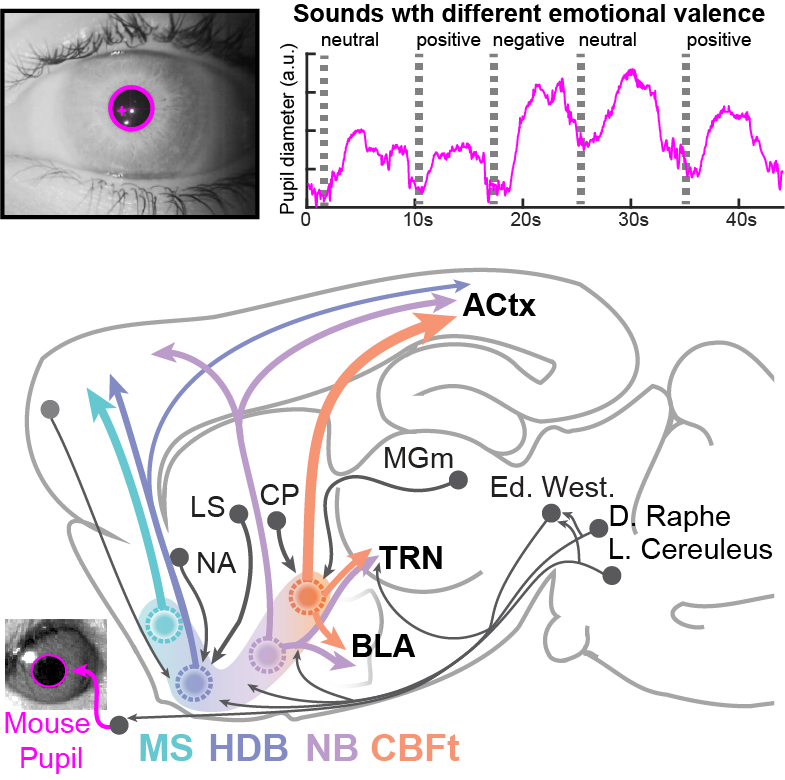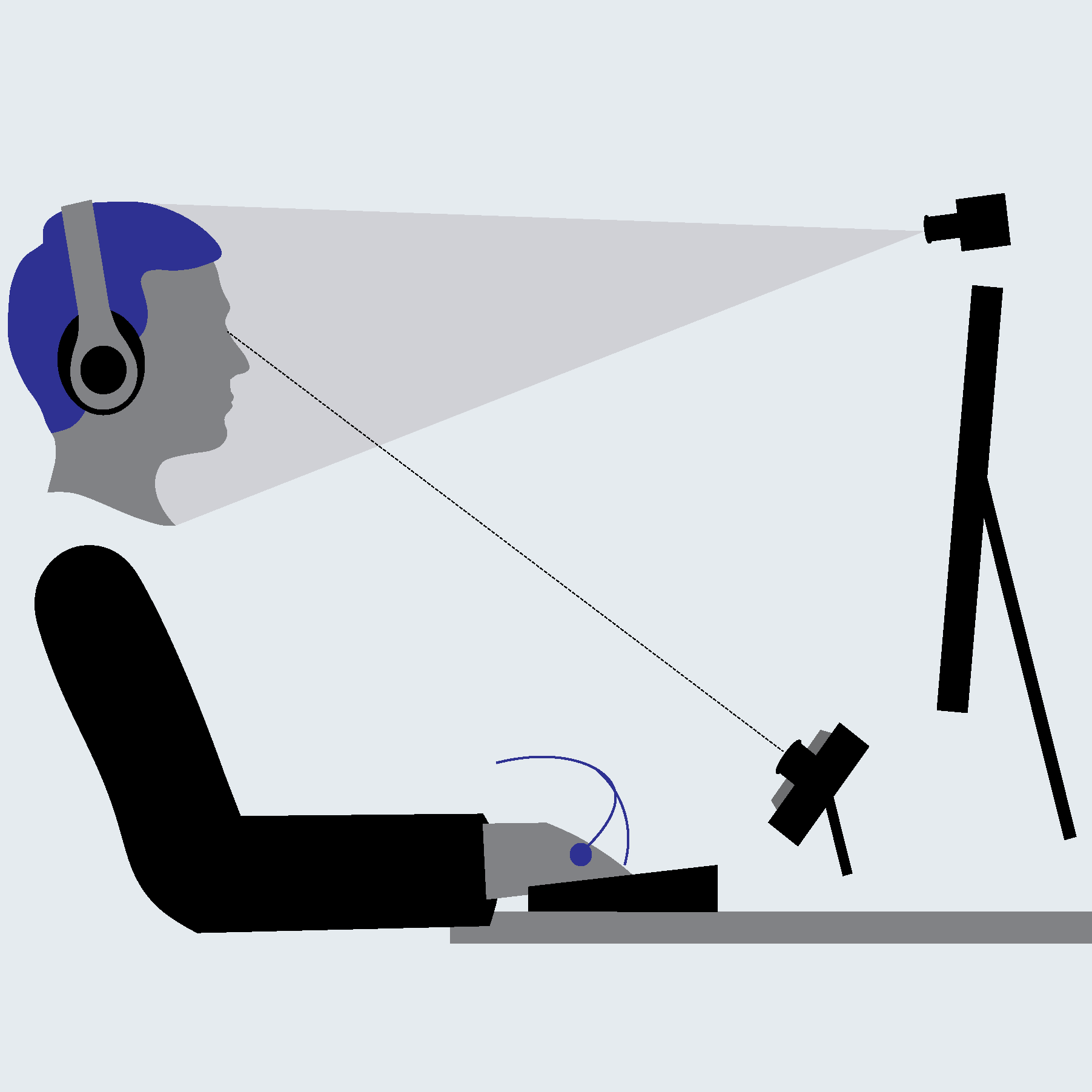Our lab is embedded in one of the world’s only specialty hospitals for sensory disorders. While most visitors to Mass Eye and Ear seek care for the loss of sensation, others are overwhelmed by the sensory world; they cannot adapt to background stimuli, they are tormented by irrepressible phantom percepts, and they find moderately intense stimuli to be intolerable and distressing. Colloquially, this condition is called sensory overload, and it is a core feature of neuropsychiatric conditions including autism spectrum disorder (ASD), post-traumatic stress disorder (PTSD), and – in the auditory modality – it is the defining feature of tinnitus and hyperacusis.
We seek to understand why people hear phantom sounds and why sound causes some people to experience hypersensitivity, distress, or even pain. Our lab is exploring new therapeutic avenues for these sensory overload disorders that leverage the brain’s endogenous “pre-wired” systems for plasticity and neuromodulation to turn down neural hyperactivity and restore more typical auditory perception. We pursue our work jointly at the scale of neural circuits in animal models at the level of integrated systems in human subjects. While our ultimate goal is to identify new treatment avenues, many lab projects are basic research studies that seek to understand the neural basis of sound perception and neural plasticity mechanisms. These basic research insights often inspire the design of our next translational projects. We are vertically integrated lab equipped to chase research questions across model systems, technical approaches, and brain regions…wherever the science takes us.
Sensation
We are working to decipher the neural operations that reformat low-level sensory codes into abstracted perceptual representations that underlie auditory-guided behaviors. In mice, we trace, monitor, and manipulate genetically identified nodes of neural circuits during active listening behaviors to illuminate the neural circuit operations that support sound awareness. In human subjects, we monitor neural and autonomic signatures of auditory perceptual accuracy. In both species, we have a keen interest in understanding how hearing loss and hearing restoration therapies affect cortical sound processing and behavioral measures of auditory sensitivity and acuity.


Modulation
Our perception of sound is so much more than a copy of the sound waveform entering the ear. “Internal state” variables such as expectation, recent stimulus histories and long-term auditory memories can powerfully shape what we hear and what meaning we take away from it. A major goal for our lab is to understand the neural circuits that support modulation of cortical sound representations by internal state variables. Ongoing research focuses on key cell types that recognize predictable, repeating temporal patterns in sound and the role of cholinergic basal forebrain neurons in listening and learning.

Rehabilitation
Tinnitus, hyperacusis, and difficulty suppressing distracting noise sources are often initiated by inner ear pathology but are directly caused by abnormal activity patterns in the brain. Our rehabilitation research is predicated on the belief that safe, affordable, and widely effectively treatments are within our grasp and can be accomplished by interrupting abnormal patterns of activity in the brain, even if damage in the ear remains untreated. Our auditory rehabilitation research began in the aftermath of the 2013 Boston Marathon bombings, where we developed digital platforms to aid survivors with suppression of phantom sound percepts. Our platforms for auditory distraction suppression were subsequently validated on older hearing aid users in a randomized controlled trial. Our current and future efforts are focused on developing next-generation digital therapies that can be combined with haptic stimulation and FDA-approved drugs and devices, with the goal of permanently reducing the salience, discomfort, and distress associated with unwanted sound percepts.
Interested in participating in our human subjects research as a potential subject? Please email hearingrehab[at]meei[dot]harvard[dot]edu .